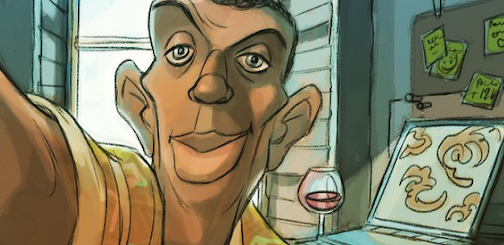Ta fête by Stromae Lyrics Meaning – Unraveling the Layers of Social Revelry
Lyrics
Danse, t’inquiète pas tu vas danser
Balance-toi, mais tu vas te faire balancer
Défonce-toi, mais tu vas te faire défoncer
Tu aimerais faire ta fête
Ta mère veut te la faire aussi, ta fête
Le juge voudrait te faire ta fête
Tout le monde te fera aussi ta fête
Tu sors trop, du moins c’est ce qu’ils disent
Ils parlent trop, c’est pourquoi tes oreilles sifflent
À qui la faute? C’est la faute à autrui, hein?
C’est les autres, toi tu n’as qu’une seule envie
Tu aimerais faire ta fête
Ta mère veut te la faire aussi, ta fête
Le juge voudrait te faire ta fête
Tout le monde te fera aussi ta fête
Tu aimerais faire ta fête
Ta mère veut te la faire aussi, ta fête
Le juge voudrait te faire ta fête
Tout le monde te fera aussi ta fête
In the pantheon of modern music, few songs capture the zeitgeist of societal pressure and personal agency quite like Stromae’s ‘Ta fête.’ This track is a masterful dissection of the tension between individual desires and communal expectations, set to an infectious beat that beckons listeners to the dance floor while simultaneously warning of the consequences that await.
To understand ‘Ta fête’ is to navigate a labyrinth of irony, juxtaposition, and cultural critique. Stromae, the Belgian maestro of melodies and messages, crafts a narrative that is as much an invitation to celebrate as it is a cautionary tale. As we peel back the layers, we discover a song that not only gets us moving but also gets us thinking.
Dance to the Rhythm of Double Entendre
Stromae is no stranger to the art of the insinuation. ‘Ta fête’ opens with a call to dance, an urge so universal that it almost feels instinctual. However, as the song progresses, it becomes clear that this is not just a simple directive. The dance here is also a metaphor for life’s chaotic ballet, with every move scrutinized and potentially punished.
Through clever wordplay, Stromae hints at the idea that to ‘dance’ can also mean to navigate society’s obstacles. ‘Balance-toi’ suggests a carefree swing but soon unravels into the threat of being ‘balanced’—a play on words implying a violent upheaval or reprimand.
A Celebration Hijacked: The Confiscation of Joy
The repetitive nature of the chorus in ‘Ta fête’ builds an almost anthemic crescendo. Yet, there is something insidious lurking in the celebrations Stromae mentions. The ominous presence of authority figures—a mother, a judge—hints at a scheduled joy that comes with strings attached, or parties thrown not in your honor, but for your admonishment.
Stromae exposes the control and facade behind these ‘celebrations,’ where the pretense of joy masks the delivery of judgment. It is as though society is eager to ‘celebrate’ not your success but your missteps, waiting for a slip in the dance to justify their intervention.
A Sonic Portrait of Generational Misunderstanding
Stromae’s generational commentary resonates through the catchy beats of ‘Ta fête.’ The line ‘Tu sors trop’ speaks to the timeless critique from elders regarding the perceived excesses of youth. This is coupled with the dismissal of such concerns—’Ils parlent trop’—illustrating the disconnect between the lived reality of the young and society’s expectations.
The finger-pointing, the blaming of ‘autrui,’ the ‘other’ for one’s struggles, unravels the deep-seated conflicts between personal liberty and societal norms. Stromae quiets the noise of this generational clash with a harmonic synthesis that points to a universal truth: everyone has their cross to bear.
The Dancing Decoy – Uncovering ‘Ta fête’s Hidden Meaning
Beyond the apparent celebration lies ‘Ta fête’s darker undercurrent, the bait and switch of a promised festival veiled in caution. Stromae sketches the line between autonomy and the looming threat of being disciplined — a universal plight that relentlessly pursues every step towards self-expression.
In ‘Ta fête,’ the dance becomes a symbol of this struggle. The song dares us to find our rhythm while warning that our very act of personal joy could be criminalized by observers acting as self-imposed adjudicators in the dance of life.
Memorable Lines that Echo Beyond the Dancefloor
As with many of Stromae’s works, ‘Ta fête’ is replete with lines that reverberate with meaning. One could argue the entire chorus is a pictogram of human behavior under societal surveillance, yet it’s the haunting duality of ‘Défonce-toi, mais tu vas te faire défoncer’ that stays with listeners. It encapsulates the entire essence of the song—indulge, but be wary of the consequences.
These memorable lines serve not only as lyrical hooks but as poignant reminders of the delicate balance we all must strike in navigating the expectations of others while trying to fulfill our desires. In crafting such powerful prosody, Stromae ignites a conversation that dances through the ages, resonating with anyone who has ever felt the paradoxical push and pull of trying to celebrate their existence on their own terms.








